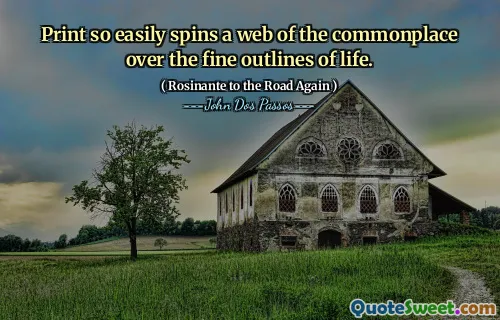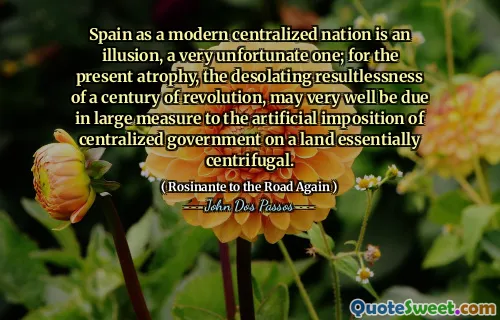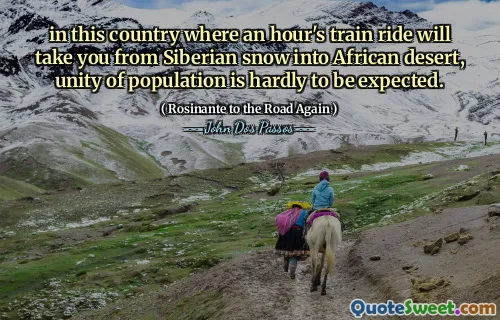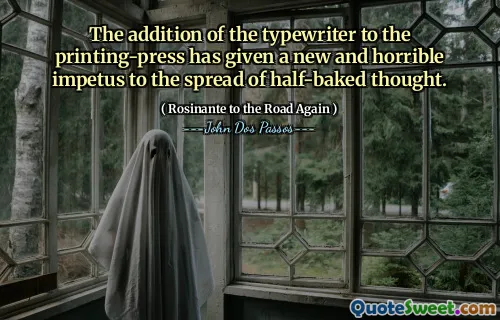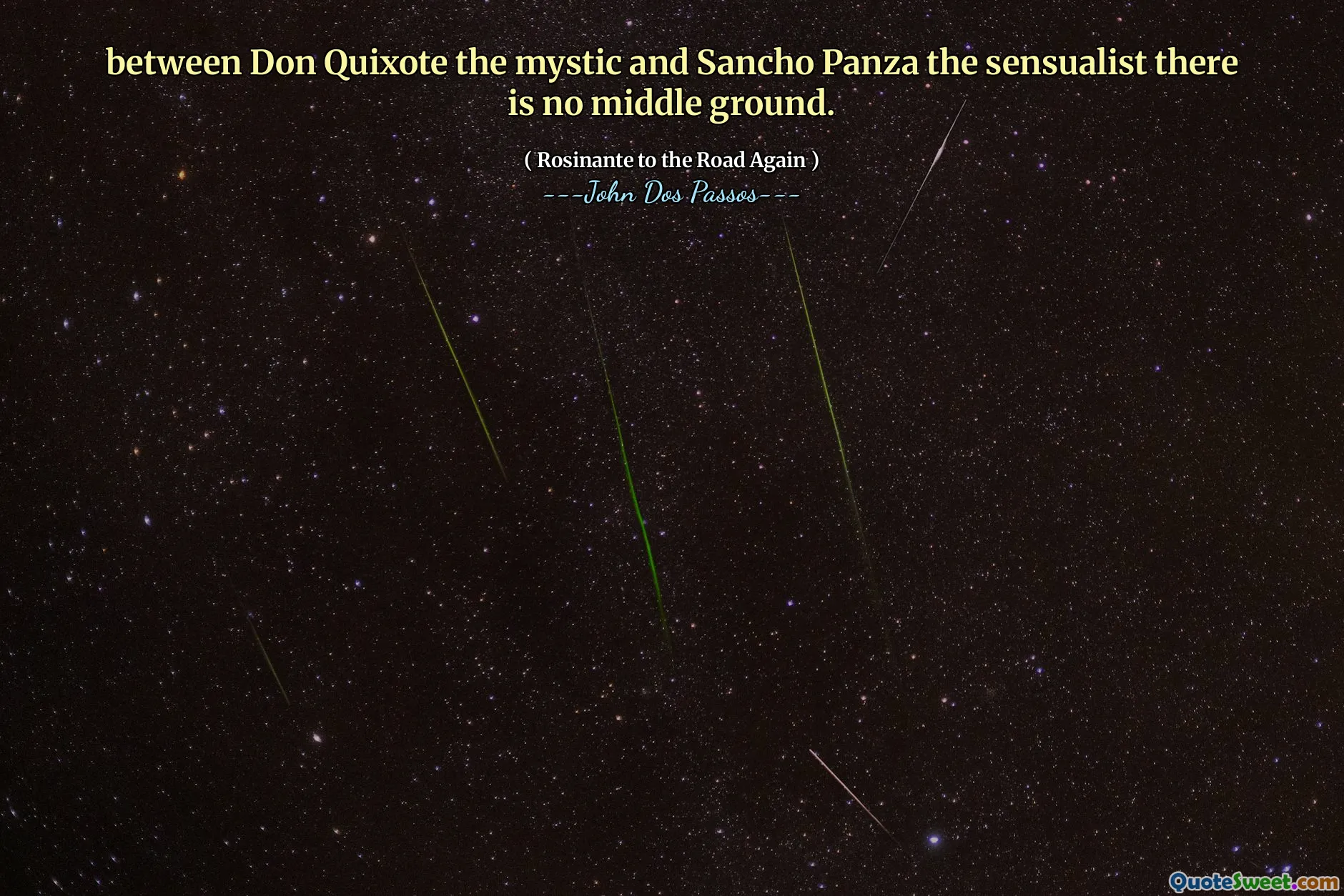
between Don Quixote the mystic and Sancho Panza the sensualist there is no middle ground.
In the book "Rosinante to the Road Again," John Dos Passos explores the stark contrast between two characters, Don Quixote and Sancho Panza. Don Quixote embodies the idealistic and mystical aspects of human nature, pursuing lofty dreams and fantasies, while Sancho Panza represents a more grounded, sensual approach to life, focused on earthly pleasures and practicality. Their differing perspectives highlight the tension between aspiration and reality.
The absence of a middle ground between these characters emphasizes a fundamental divide in human experience. While Don Quixote's lofty ideals can inspire greatness, they risk detachment from the real world, while Sancho's earthly pragmatism can lead to contentment but might lack the visionary spark. Together, they encapsulate the complex interplay of dreams and reality in the human condition.
